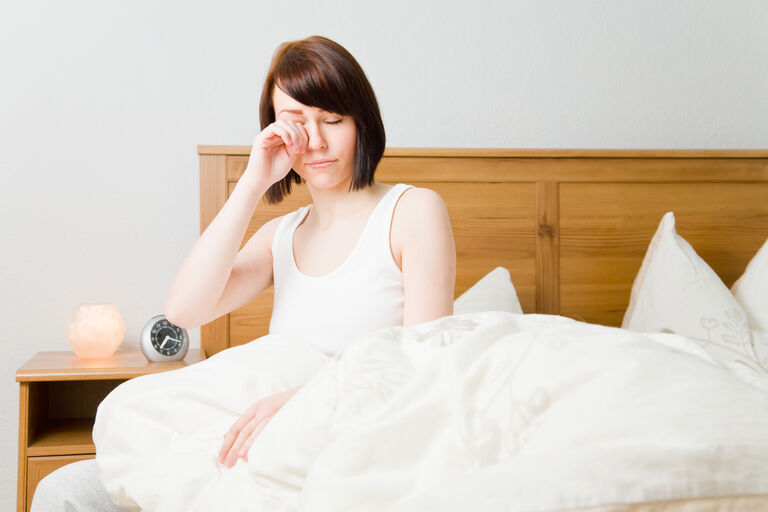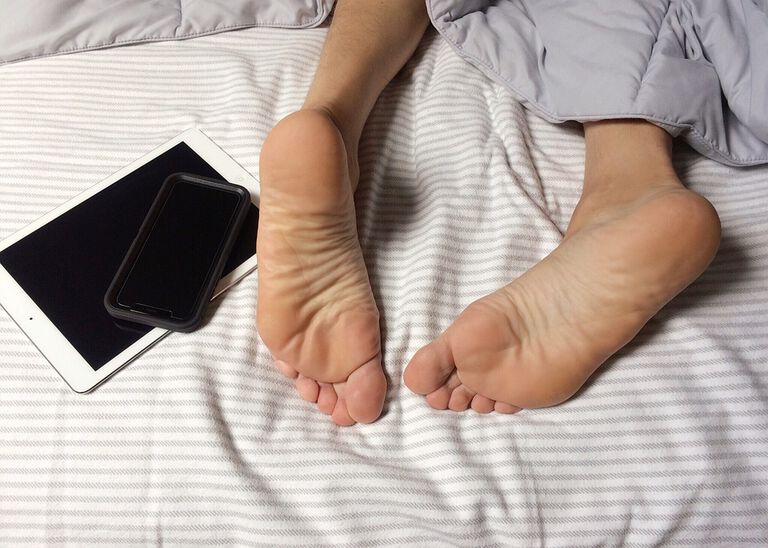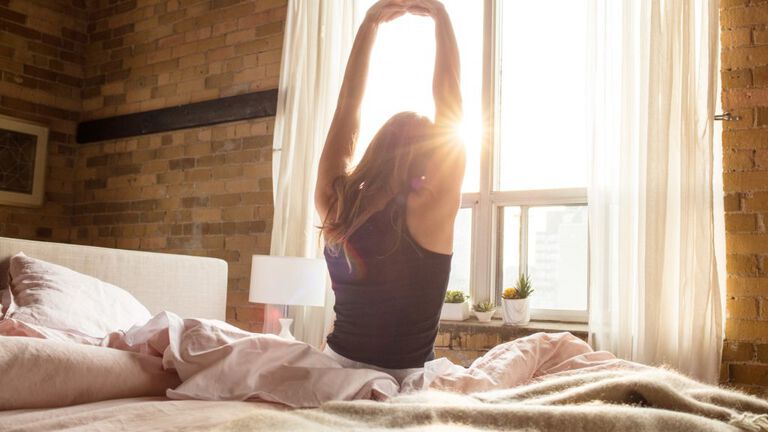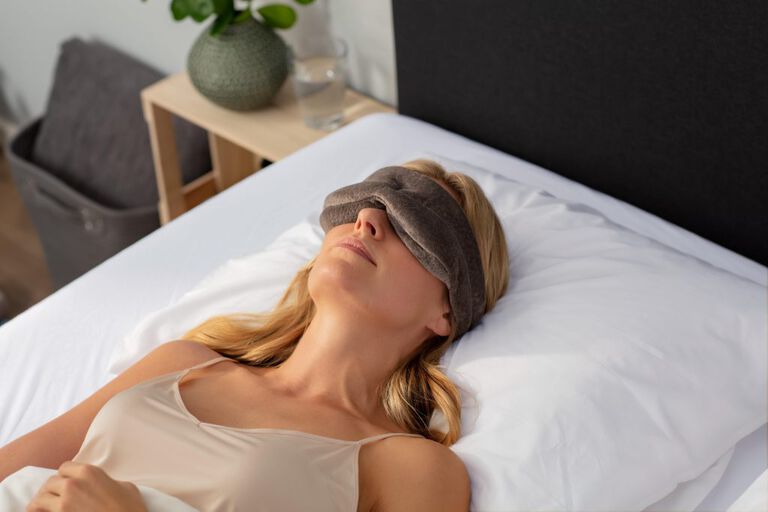AGING AND SLEEP
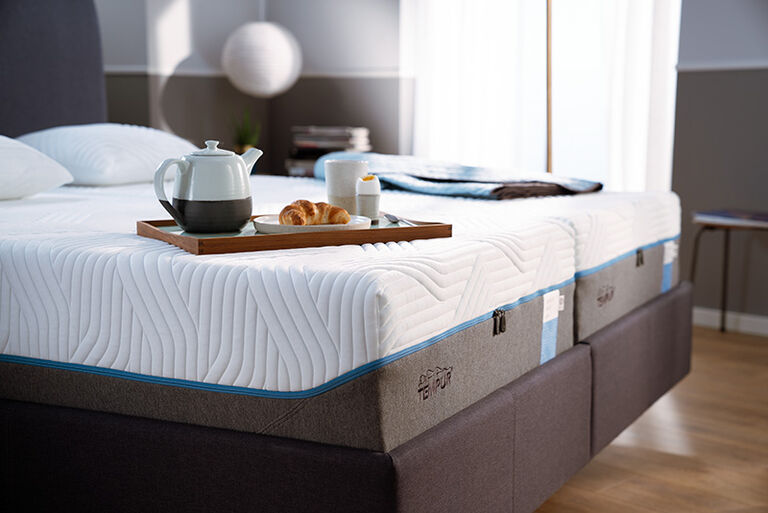
The way we sleep changes over our lifetime, adapting as our brains and bodies grow and develop. While newborns need up to 20 hours of sleep each day, the amount of sleep we need reduces over time, so that as adults, we usually sleep for around seven to nine hours each night.
Sleep patterns also evolve. The way we sleep in those first few months of life changes as we move through toddlerhood, childhood, adolescence and into adulthood. Getting into middle age and older age, however many find good quality sleep more difficult to come by, and older adults can often find it hard to get to sleep, or stay asleep through the night.
Despite sleep becoming more elusive for some, older adults still need that recommended seven to nine hours of sleep. So, what can you do if you are finding it difficult to sleep as you get older? In this post, we’re going to look at the effect of sleep on aging, as well as the effect of aging on sleep, focusing on tips to help you sleep that could help no matter your age.
A LACK OF SLEEP AND ITS EFFECT ON AGING
Sleep is incredibly important. It helps to repair and regenerate the mind and body, working on crucial things like memory and cognitive performance. Chronic sleep deprivation has been linked to medical problems such as obesity, diabetes, cancer and immune deficiency, but did you know a lack of sleep could also be causing your skin to age faster?
During a 2013 clinical trial* commissioned by Estée Lauder, poor sleepers demonstrated increased signs of skin aging, and also tended to give a worse assessment of their own skin and facial appearance than those who slept well. Conducted by physician-scientists at University Hospitals (UH) Case Medical Center, this study was the first to conclusively demonstrate that inadequate sleep is correlated with reduced skin health and accelerated skin aging.
In the study, sleep deprived women showed a decrease in their skin’s ability to recover after sun exposure, and an increase in signs of premature skin aging, such as fine lines, uneven pigmentation and reduced skin elasticity. The study also found that those who enjoyed quality sleep were more quick to recover from stressors to the skin such as sun and environmental toxins.
CHANGING SLEEP PATTERNS AS WE AGE
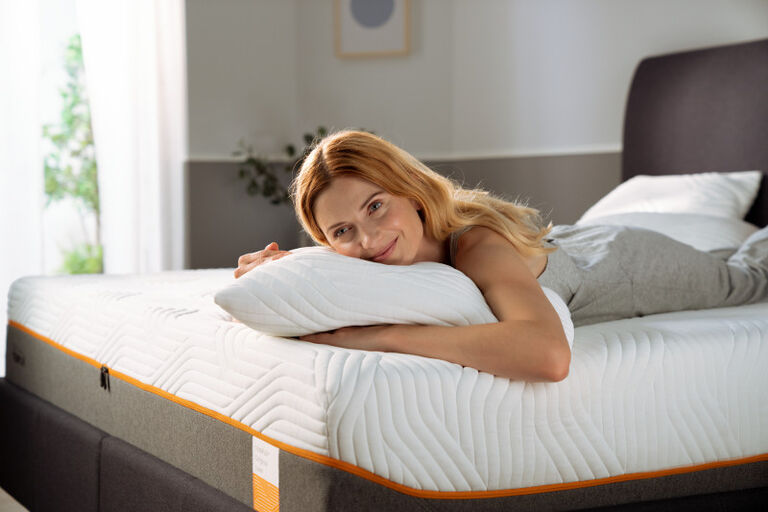
Now we know how sleep deprivation can affect us as we age, it’s time to look at what may be causing us to lose out on sleep. Changing sleep patterns affect the way we sleep. This not only alters the amount of sleep we need as we get older, by the type of sleep we get. For example, the average deep sleep by age and the average REM sleep by age changes over time.
- Amount of sleep: Newborns spend 16 to 20 hours asleep each day. This decreases between the ages of one and four to a total daily sleep time of 11 or 12 hours. A gradual decline continues through childhood, to a point where an adolescent will need about nine hours of sleep, and adults need around eight hours.
- Sleep patterns: Changing sleep patterns move from the sporadic sleep patterns of a newborn, cycling through sleeping and eating day and night, then after a period of three or four months, sleep becomes more consolidated and can develop into patterns. Older infants and children move to a solid night sleep plus one or two naps, and by the age of six, most children stop naps to experience all their sleep through the night, which continues into adulthood.
- Type of sleep: Sleep cycles assist in our development as we age. For example, REM sleep is thought to assist in brain development, which may be why newborns and infants typically spend about twice as much time as adults in REM sleep. And while infants’ and children’s cycles contain a relatively large amount of slow-wave deep sleep, elderly adults typically have relatively short periods of slow-wave sleep and fewer of them. This means, as we age, sleep is lighter and more fragmented, with brief arousals or longer awakenings throughout the night.
- Timing for sleep: Another factor that changes as we age is the way our bodies regulate the timing of sleep. As we get older, the window during which the internal clock enables sleep narrows. This may explain why older adults tend to go to sleep earlier in the evening and wake up earlier in the morning.
TIPS FOR SLEEPING BETTER
Unfortunately, it’s not just our physiology that can prevent us from sleeping as we age, there can be other factors in play as well. Seniors tend to suffer an increased incidence of medical problems, which are often chronic. Aside from insomnia, which also tends to be more prevalent among older adults, issues with sleep can be caused by medications, stress and lack of activity after retirement.
So, how can you deal with old and middle age sleep problems? Often, the first thing to look at when you’re having problems sleeping is the underlying cause. Perhaps you have poor sleep hygiene, napping in the evening before bed. Maybe your medication is causing you to sleep poorly, or perhaps you’re not getting enough exercise.
Check out the following sleep tips to see how they could help you.
- Avoid caffeine, alcohol and nicotine before bed. Read more about Alcohol and Sleep here.
- Create a sleep space that encourages good quality sleep. Find out about organising your sleep space here.
- Reduce screen time. Find out more about how electronics affect sleep and how reducing screen time can help, here.
- Establish a pre-sleep routine. Read more about how to do that in our post Finding a Bedtime Routine for Good Sleep.
- Nap early, or not at all.
- Go to sleep when you’re truly tired to avoid frustration. You can find out more about what is the best time to sleep in this post.
- Get some exercise, but avoid exercising at least three hours before bed. More about exercise and sleep can be found here.
- Invest in a quality mattress that offers the support you need through the night. Check out these tips for buying a mattress that is the perfect fit for you.
sources
*https://www.sciencedaily.com/releases/2013/07/130723155002.htm
Feel it for yourself
Find a TEMPUR store or Stockist and try out our range of mattresses for yourself

SIGN UP FOR THE NEWSLETTERS!
By signing up, you agree to receive TEMPUR Australia’s products, services, news, reviews and promotions by emails. For more information on how we process your personal data, please refer to our Privacy Policy.
